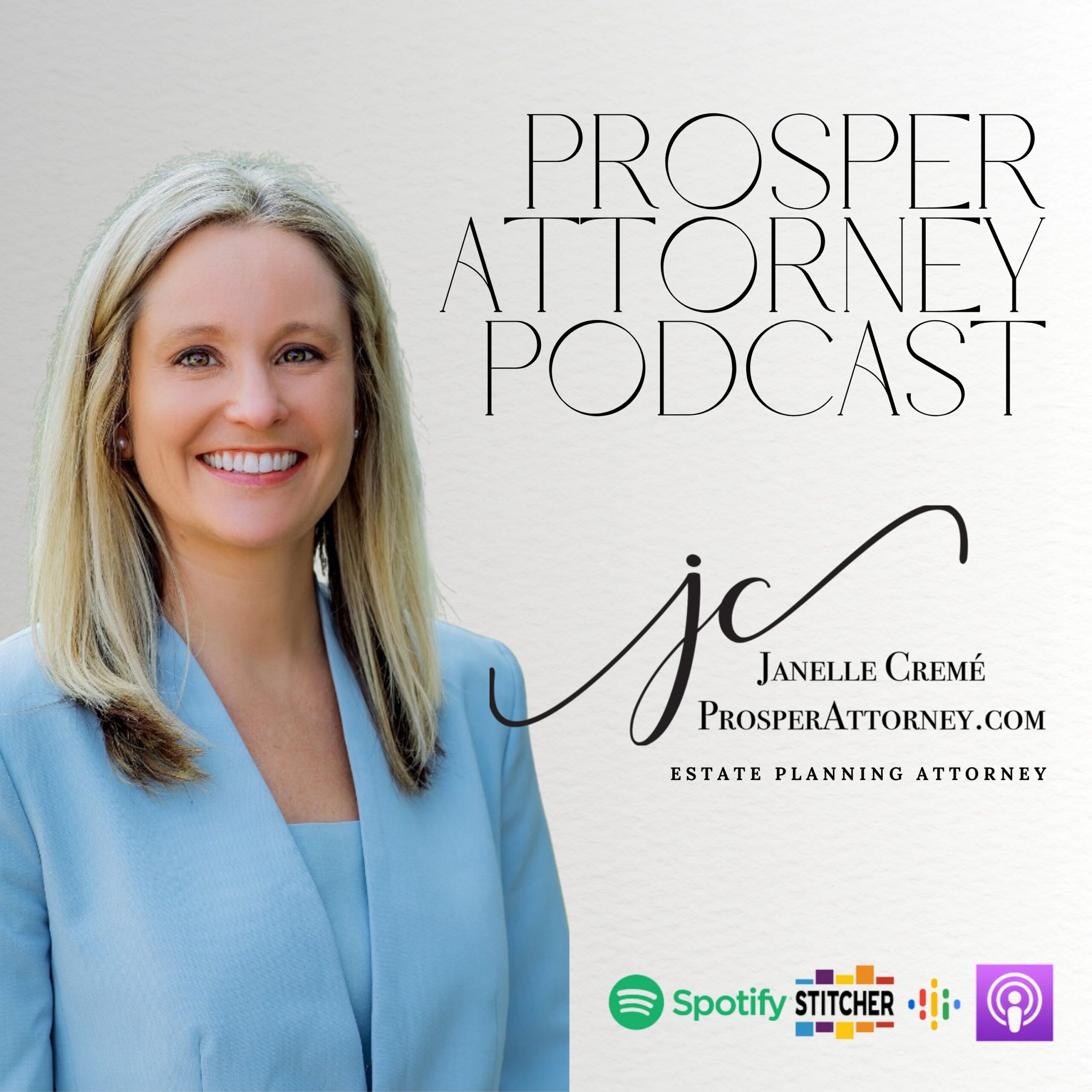
Prosper Attorney Podcast – EP7: Prosper Attorney Podcast
Streamlining Estate Planning: Navigating Family Dynamics and Readiness with Janelle Cremé
Estate planning can be daunting, yet it plays a crucial role in ensuring your loved ones are protected and your wishes are honored. In the latest episode of the Prosper Attorney Podcast, host attorney Janelle Cremé dives deep into the complexities of the estate planning timeline, clarifying common misconceptions, and providing vital tips for listeners. Understanding how long the estate planning process typically takes is essential for individuals and families considering this step. The timeframe can significantly vary based on various factors, ranging from the individual’s readiness to prioritize planning to the specific estate planning instruments in question.
Many people often ask, “How long does the estate planning process actually take?” Janelle notes that this can range anywhere from as little as two weeks to an extended timeline of up to a year. The average backlog appears to fall between one to two months. The important thing to remember here is that the timeline primarily hinges on the client’s decisiveness and situation. For instance, clients motivated by imminent travel plans might complete the necessary documentation in a matter of weeks, provided they stay engaged and complete necessary questionnaires promptly. Knowing what you want to achieve with your estate plan can expedite this process significantly.
On the other hand, life circumstances can slow down the planning process. Emotions tied to certain decisions, especially those concerning sensitive family matters—like guardianship of children—can prolong what is otherwise a straightforward procedure. Often, individuals realize that they need to revisit decisions or strategies that they had previously considered simple. This realization can prompt a necessary pivot in approach, which may call for additional discussions or deliberation. At times, just scheduling meetings can become a hurdle in itself, especially during busy periods in life.
Another layer contributing to the overall estate planning duration is the prioritization of the task on the individual’s to-do list. Janelle emphasizes that many people find the idea of estate planning intimidating and are often paralyzed by the profound implications it presents about mortality and familial relationships. Hence, breaking down the estate planning process into manageable, less overwhelming tasks could help ease clients into the planning mindset. Acknowledging potential fears can often lead to an empowering planning journey, alleviating the stress and uncertainty that many feel initially.
Preparing for an efficient estate planning process involves some strategic pre-planning. This preemptive work streamlines the overall timeline significantly. Janelle advises that individuals begin contemplating what kind of legacy they would like to leave behind. Questions like “Who do I want to care for my children?” or “Where should my assets go?” should be addressed well before an initial estate planning meeting. Gather necessary documents regarding your finances, debts, and assets, as well as contact information for potential guardians or trustees. Everyone involved in the estate planning process can benefit from getting accustomed to the questions beforehand, allowing for a smoother experience.
Maintaining an estate plan is equally important as creating one. Regular check-ins, as Janelle recommends, should happen annually to assess changes that may affect your estate plan. Although trusts often don’t require frequent updates, powers of attorney should be reviewed every five to ten years due to evolving laws. Decisions made before can become outdated or irrelevant due to life changes such as marriage, divorce, births, or deaths, necessitating a reevaluation of previously made choices.
Cost also plays a critical role in the equation. While people often fear what they might have to spend to update their plans, Janelle reassures listeners that making small, targeted changes typically incurs minimal fees. Costs can increase if significantly altering major documents like wills, but returning to the same attorney for minor updates is generally less expensive since your planner already holds your details.
The lessons shared during this episode not only highlight the timeline, factors, and costs affective estate planning but also reveal how listeners can navigate the inherent uncertainties. Ultimately, the key message revolves around the importance of estate planning as an act of care for your family. By equipping yourself with understanding and tools, you can make vital decisions to protect your loved ones and secure your legacy effectively.
Address
Janelle Creme, PLLC
900 S. Preston Rd, Ste 50 #101
Prosper, TX 75078
Phone
(469) 714-2280
